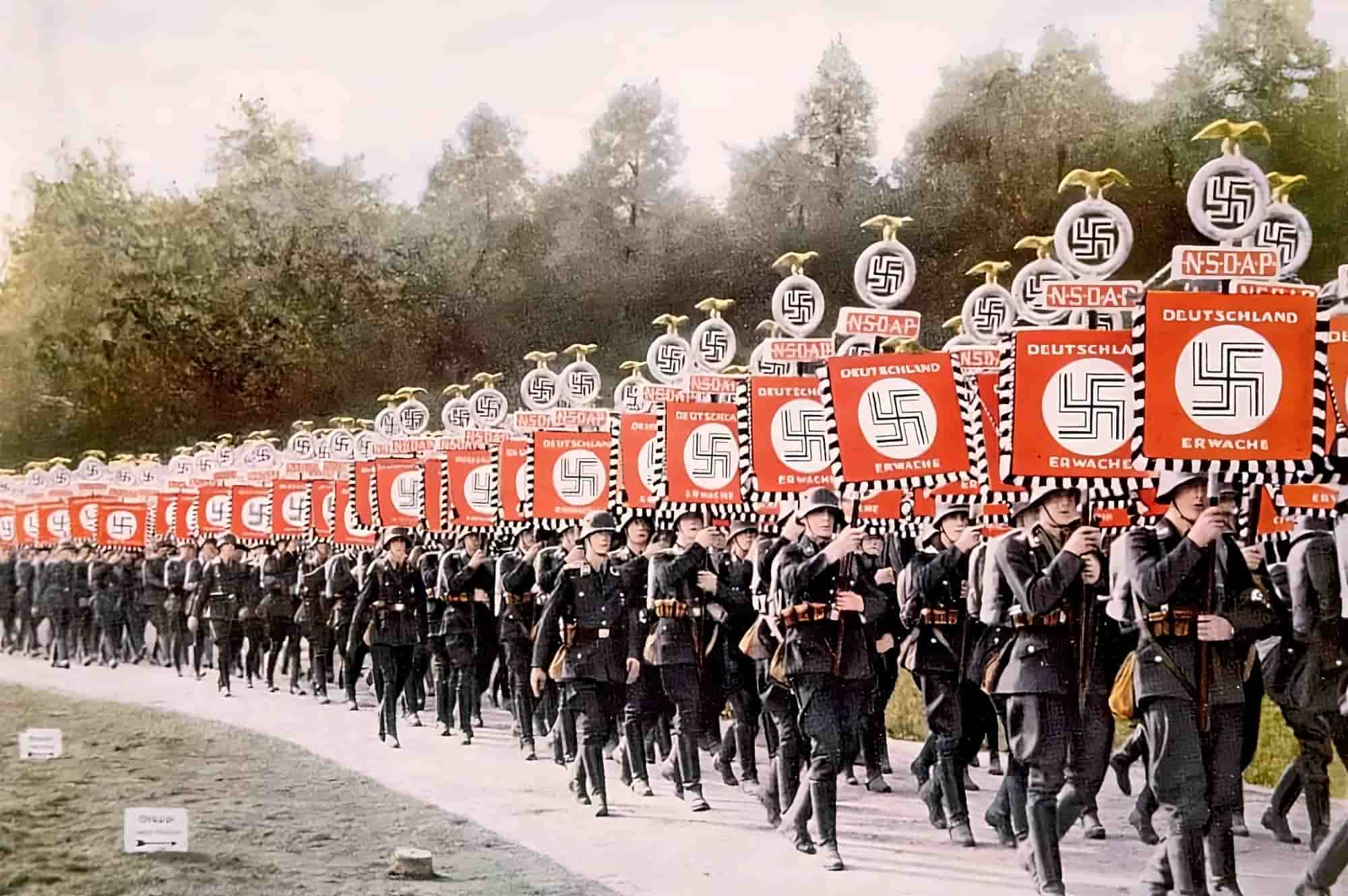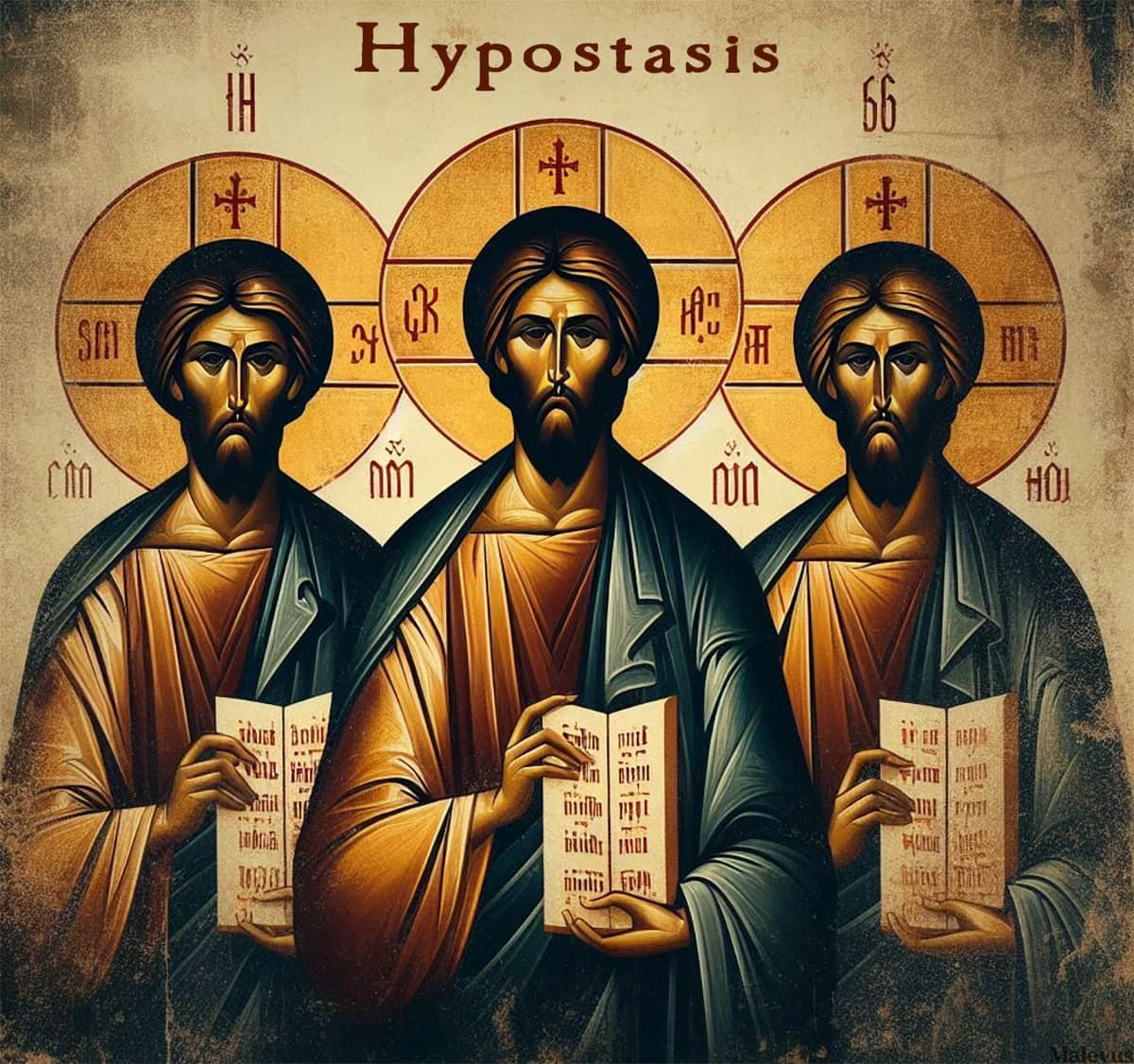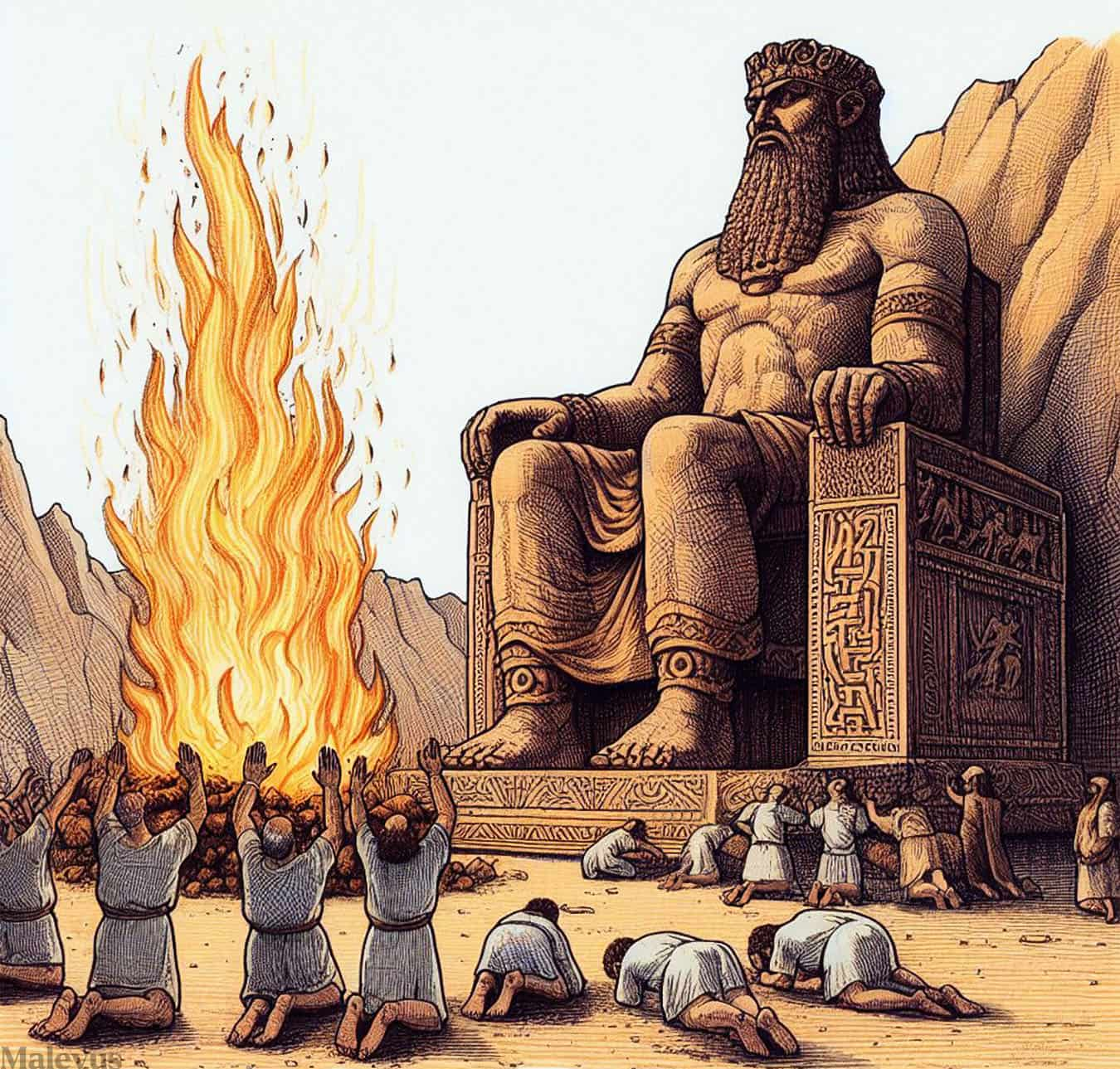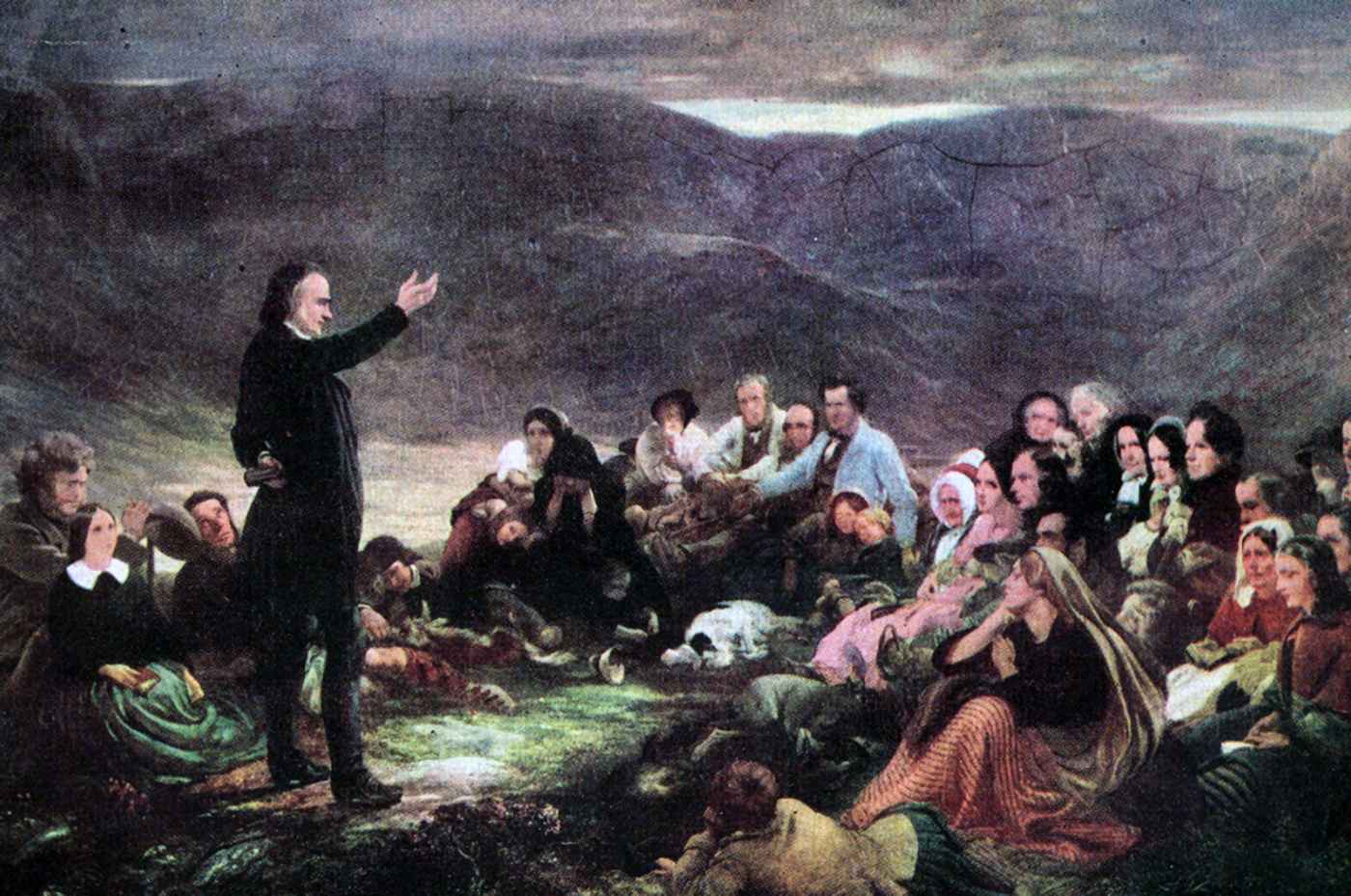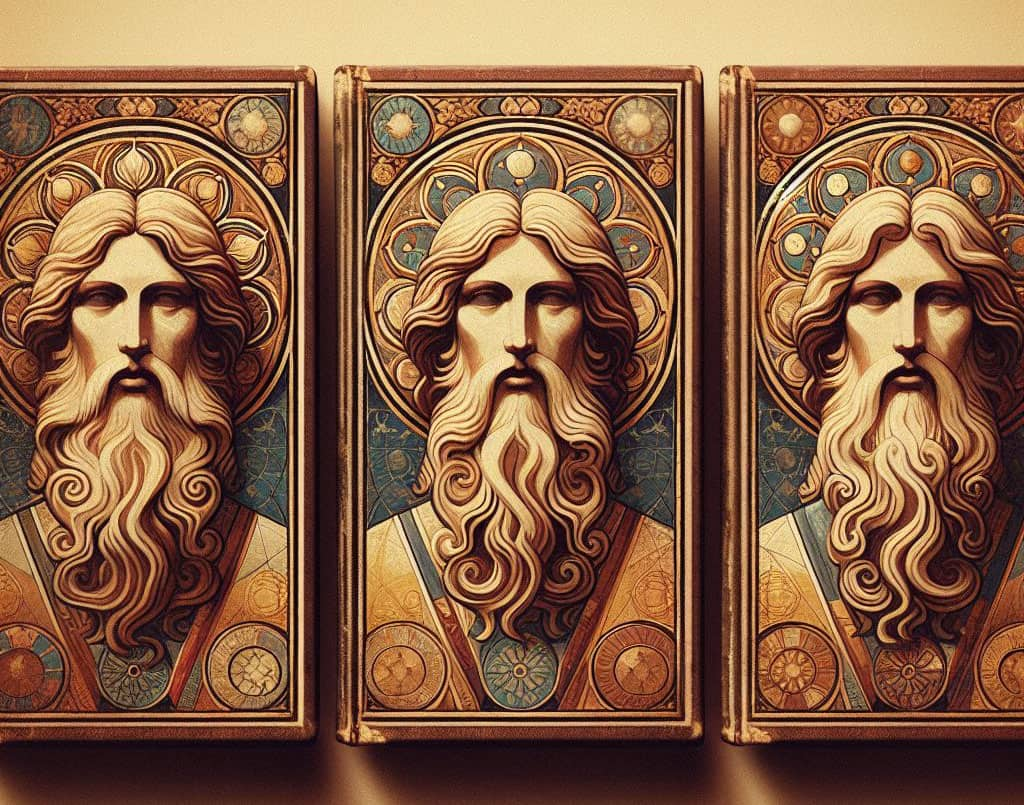The notion that Nazis were “atheists” is a Christian fabrication aimed at deflecting responsibility for their involvement in Nazi crimes and the Holocaust and placing the blame on “godless” atheists. In reality, around 90% of Nazis were Christians. The downfall of the Christian Center Party played a crucial role in Adolf Hitler‘s rise to power (and being a multibillionaire), as the Church threatened to remove all its priests from the party to seal the end of it. The reality is that Christianity is deeply anti-Semitic; it can be traced back to the Gospels and may be seen in the writings of Martin Luther, who was himself a particularly vicious anti-Semite. The Nazis benefited greatly from him and his ideas.
The Church’s Alignment with the Nazis
The German Christians, especially in the case of the Gospels, the German Evangelical Church, were Protestants who conformed to the Führer and the Nazi ideal and anti-Semitism. In the German Reich in 1939, 94% of the population was Christian while just 1.5% was atheist; nonetheless, the Nazi Party still won 43.9 percent of the vote with 88.5 percent voter participation in the 1933 election. The data speaks for itself when it comes to the religion of the Nazis and the Nazi Party.
Although Hitler considered himself a Catholic and privately confirmed this to General Gerhard Engel in 1941, “I am now as before a Catholic and will always remain so,” he declared himself a “German Christian” rather than a Catholic in an early speech during his dictatorship (1933–1945). Despite some differences with the Church, it is not accurate to classify Hitler or the other Nazis as atheists. The Church aligned itself with Hitler and the Nazis in their shared goal of exterminating Jews and defeating atheistic communism, as many communists were atheists at the time. Although the Church later distinguished itself from Hitler and the Nazis, it never did so during the Third Reich.
Adolf Hitler’s quote on religion:
“It’s been our misfortune to have the wrong religion. Why did it have to be Christianity, with its meekness and flabbiness? Islam was a Männerreligion—a religion of men—and hygienic too. The soldiers of Islam received a “warrior’s heaven”, a real earthly paradise with houris [virgin women] and wine flowing. Islam was much more suited to the Germanic temperament than the Jewish filth and priestly twaddle of Christianity.”
The Religion of the Nazis
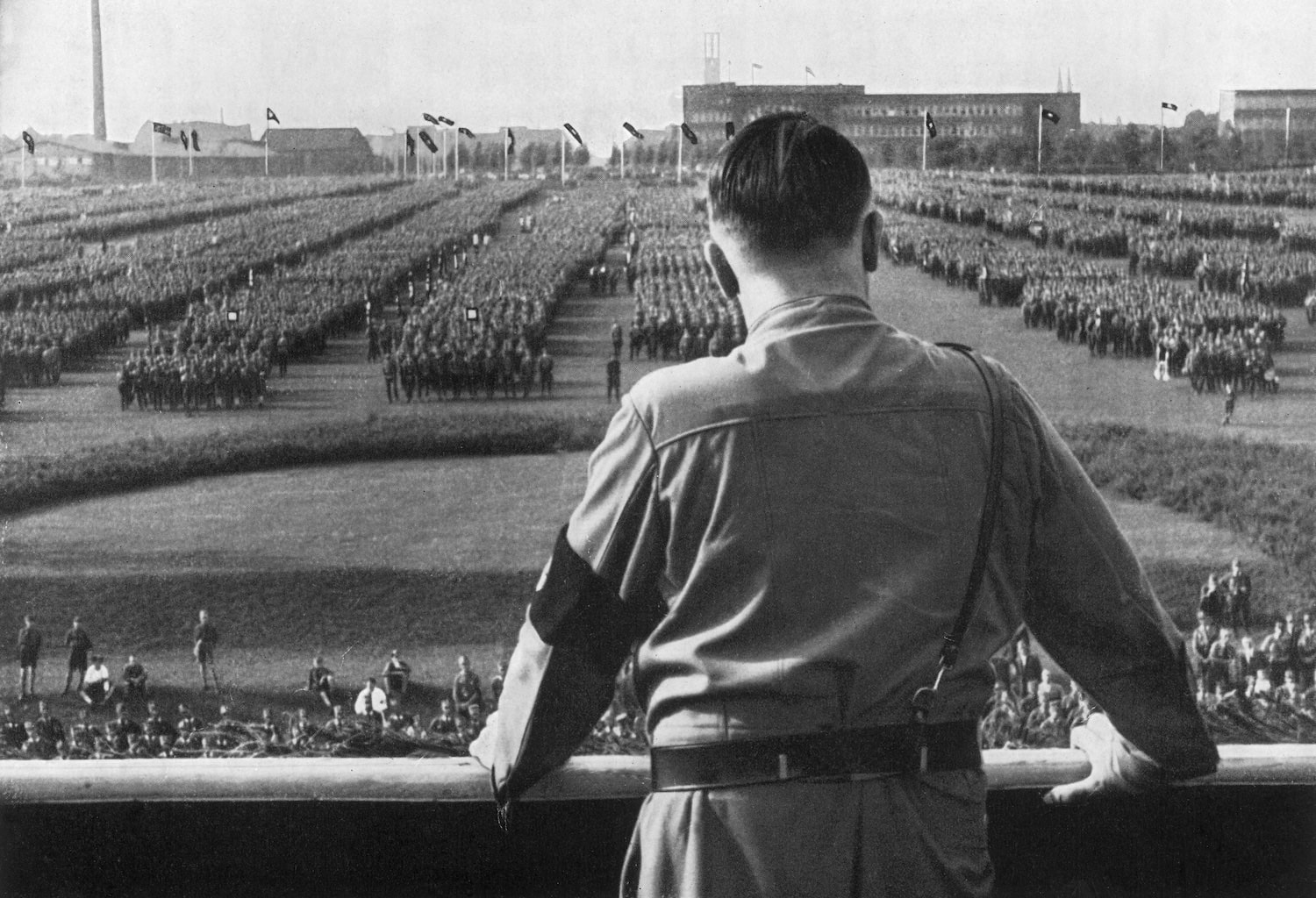
It’s clear from Hitler’s “Mein Kampf” that Hitler, a devout Catholic, never abandoned his faith or quit the Church. His objectives have always been Christian-inspired, yet Hitler had a dim view of churches, which he described as “effeminate.” Heinrich Himmler and the SS were not atheistic; rather, they sought to revitalize ancient forms of Germanic religion.
The Pietist movement represented a subset of evangelical Christians, and Luther’s pietistic ideas were particularly useful to the Nazis. They were known to be strictly traditional and totally against enjoying life. The Pietists were an early support group for the Nazi Party. Many low-income Germans were convinced to support National Socialism by the anti-Semitic ideology of Pietists, who promised to lift their communities out of poverty.
However, it wasn’t only the Pietists; many moderate Protestants supported the Nazis wholeheartedly. Religious conservatives voted overwhelmingly for the NSDAP throughout the rest of Germany. The Deutsche Christians movement was primarily made up of Nazis and Hitlerists. When Hitler was named Reich Chancellor in 1933, they enthusiastically rejoiced. Overall, the Christian community was crucial to the Nazi Party and Hitler’s rise to power. The NSDAP did very well among Lutherans. Thus, it appears that the Nazis were not atheists but Christians.
Some Christian groups still believe that the Nazis were atheists, even though this isn’t true and seems to be a way to distract from the fact that the churches were deeply involved in Nazi atrocities while also smearing and demonizing atheism.
The Nazis Banned All Atheist Organizations Before Targeting Jews
The primary force in the battle against Nazism were atheists, specifically communists, who were never recognized for their efforts and were even labeled traitors to their homeland after the war. This irrational strategy worked, with Hitler first prohibiting all atheist organizations before targeting Jews. This resulted in the elimination of all existing atheist associations in Germany. As a result, the sacrifices of the German atheists, including fleeing, resisting, or dying in concentration camps, were ignored.
Consequently, no atheist group in Germany was able to survive beyond the Nazi regime. This prohibition applied not only to communists but also to all humanist organizations. Atheists either fled, fought against Nazism, or perished in concentration camps. Despite this, the false notion that Nazis were atheists and that is why they were responsible for all wrongdoing was spread as a demagogic tactic for scapegoating atheism. This was wielded as a weapon for political gain.
To Become an SS, One Had to Swear to Believe in God
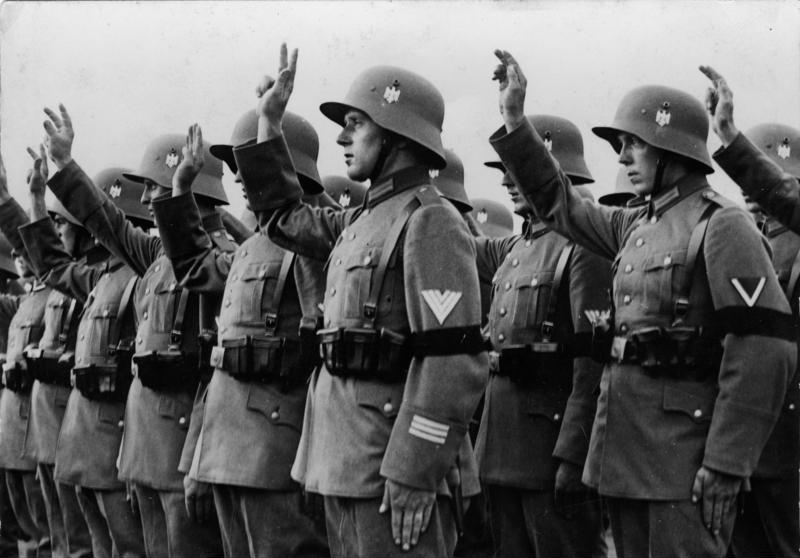
Contrary to popular belief, the notion that Nazis were atheists is a falsehood. The SS Oath of the Nazi Party is especially significant for determining if the Nazis were atheists or not: To join the SS, one had to pledge allegiance to God and wage war against atheism.
The complete Oath of the SS was comprised of three questions and answers, and the following excerpt is sourced directly from the pen of Heinrich Himmler himself.
| German | English |
|---|---|
| “Wie ist Dein Eid ?” – “Ich schwöre Dir, Adolf Hitler, als Führer und Kanzler des Deutschen Reiches Treue und Tapferkeit. Wir geloben Dir und den von Dir bestimmten Vorgesetzten Gehorsam bis in den Tod. So wahr mir Gott helfe !” “Also glaubst Du an einen Gott ?” – “Ja, ich glaube an einen Herrgott.” “Was hältst Du von einem Menschen, der nicht an einen Gott glaubt?” – “Ich halte ihn für überheblich, größenwahnsinnig und dumm; er ist nicht für uns geeignet. | “What is your oath?” – “I vow to you, Adolf Hitler, as Führer and chancellor of the German Reich loyalty and bravery. I vow to you and to the leaders, that you set for me, absolute allegiance, till death. So help me god !” “So you believe in a god?” – “Yes, I believe in a supreme being.” “What do you think about a man who does not believe in a god?” -“I think he is overbearing, megalomaniac and foolish; he is not adequate for our society.” |
If Nazis were supposed to be religious Christians, according to their oaths, it seems reasonable that they would train their top fighters (SS or Schutzstaffel) to be anti-atheist.
Tension Over Baptized Jews
The churches initially supported most of the Nazi policies. However, tensions arose over the issue of euthanasia and the extermination of baptized Jews, whom the Nazis considered Jews while the Church saw them as Christians. The Church made great efforts to covertly evacuate baptized Jews from the country, while remaining apathetic towards non-baptized Jews. This is evidence that the Church was well aware of what was happening to the Jews.
In fact, there were priests in every extermination camp, serving as chaplains to the guard personnel. To suggest that they were unaware of what was happening is naive. The Nazis also persecuted priests and put them in concentration camps. However, the Nazis did not label the Church as anti-National Socialist. The priests who were imprisoned were mostly from small church resistance groups, because not all Christians turned a blind eye and supported the Nazis after all.
The Christian Roots in the Nazi Ideology
As a religious institution, the church has never been beyond spreading false information. Atheism among the Nazis is one of them. But as a condition of joining the SS, one had to take an oath to oppose atheism and profess their faith in God.
Paganism was also practiced by the Nazis, as claimed by the Nazi Party’s regional leader (Gauleiter) Karl Wahl. To this day, this claim still allows people to accuse Pagan people they encounter of being Nazis. A few of the National Socialists were really interested in instituting a kind of Germanic Paganism. Hitler openly expressed his disdain for these individuals.
The Gospels, Christian history, and one of the prominent anti-Semitic figures in German history, Martin Luther, all provide unambiguous Christian foundations for Nazi anti-Semitism. The Nazis always had Luther to use in their anti-Semitic rants; Goebbels, on the other hand, was no match for him.
Ante Pavelic, who sought to construct a “Catholic State,” was also responsible for some of the greatest atrocities perpetrated during World War II following the Nazis. His deeds were so heinous that even Hitler was surprised by them. Over 100,000 Serbs and Jews were killed in concentration and extermination camps as a direct consequence of Pavelic’s orders.
What Does It All Mean?
Does being involved in evil acts like those committed by the Nazis automatically make one an atheist, even if one claims to be a theist of a certain religion? And can the same be said for an atheist who performs acts of charity? Are they secretly theists? There is a tendency to categorize bad people as non-believers and good people as believers, but the reality is that most people don’t align with their religion and may even lie about their beliefs.
This means that even some theists can be terrible individuals. However, even if we assume that the Nazis were all atheists, it doesn’t mean that all atheists today are Nazis or that atheism inherently leads to Nazism. Moreover, this fact alone wouldn’t be proof of the existence or non-existence of God. Whether someone is a truth-teller, or a liar doesn’t change based on the atrocities they commit in the name of their beliefs.



